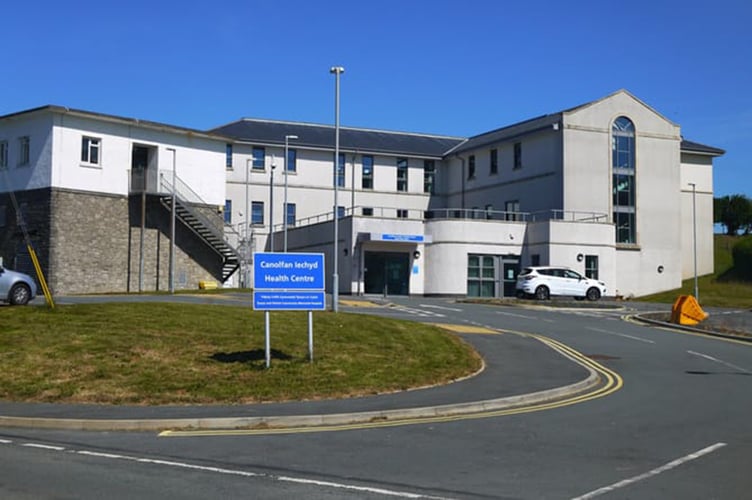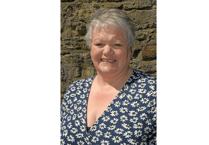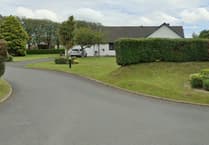Regional GPs and practice managers fear there could be a gap in access to surgeries across mid Wales without serious reform to a sector ‘in crisis’ – amid fears over a ‘retirement timebomb’.
The stark warning from those in Ceredigion and Gwynedd comes as the British Medical Association (BMA) Wales released its Save Our Surgeries report – outlining four ‘key calls’ to achieve that aim.
Partner GP at Borth Surgery, Dr Sue Fish told the Cambrian News the sector had reached a ‘turning point’ whereby, without investment, there could be mass closure of surgeries and vast swathes of the population left struggling to access general practice.
Serious recruitment and retention issues, particularly in rural areas, mean retiring GPs are now proving difficult to replace – and surveys show more than ever plan to retire before they turn 60.
The average retirement age for GPs
She likened the situation to that of dental care in the UK which has been fragmented to such an extent that nine in 10 public dental practices are not accepting new adult patients under the NHS – and millions of people are unable to get treatment.
Dr Fish was invited to Cardiff to the BMA report launch to speak about the situation facing Borth Surgery – which was threatened with closure but was granted a reprieve after a salaried doctor joined in February.
She said by September she may be forced to work without pay to keep the surgery going as they are unable to find a new partner GP, who holds the NHS contract and needs to be on site for the surgery to operate, and there are serious concerns about the long-term financial viability of the site.
Dr Fish, who was also central in calling on the Welsh Government to outline a rural strategy to retain current GP surgery levels, said she knows of several surgeries across mid Wales which are on a knife edge.

There are growing concerns over the future of Tywyn Surgery, but Betsi Cadwaladr University Health Board says there is no immediate threat of closure.
It said it will be attempting to recruit new GPs to avoid appointment delays for patients. In February, there were only two permanent GPs in Tywyn which almost closed last year before Betsi Cadwaladr stepped in to take over management.
The Cambrian News sent a Freedom of Information request to Hywel Dda University Health Board asking for the number of GPs who have reached retirement age in Ceredigion, but they do not hold the figures as they do not employ surgery staff directly.
So, we spoke with the practice managers at all the GPs’ surgeries across the county to see if they had GPs or partners approaching retirement – and whether any would be left in a situation similar to Borth.
Practice manager at New Quay surgery Pete Kemp said the site only had two whole-time equivalent GPs, where it used to be three. He added that both are in their late 50s which is ‘typical for the rurality of the area’.
The average retirement age for GPs is now just 59 and recent research from Pulse, an industry publication, suggests nearly 50 per cent of the current workforce are planning to hang up their stethoscopes by 60.
The percentage of GPs planning to retire by 60
Practice manager at Aberaeron surgery Andrew Power said the surgery was ‘fortunate’ to have two GPs in their early 40s but another is of retirement age and has come back to work. With only the equivalent of 2.25 full-time GPs, the surgery and the GPs could soon face challenges similar to Borth.
Machynlleth surgery, according to the practice manager Luck Cockram, is ‘up and coming’ and has about five full-time equivalent GPs and eight in total.
She said none of the GPs are over the age of 50 – and they cater to a population of 7,000.
The latest figures show that, as of September 2022, there were 280 GPs employed in the Hywel Dda area, of which at least 12 per cent are over the average retirement age (60 or over). This is the highest proportion in that age bracket of any health board in Wales. For Betsi Cadwaladr, it is nine per cent.
But it still doesn’t tell the whole story at Hywel Dda, as a quarter of GPs are between the ages of 50 and 59 – so a significant proportion of these could also be approaching or considering early retirement, which has reached record levels, British Medical Journal found.
One of the other challenges which is particularly acute in rural areas and Ceredigion in particular is the high and growing number of patients catered to per whole-time equivalent GP. The BMA report says it has risen from 1,675 in 2013 to 2,210 in 2022. The Borth surgery for instance has been operating at about 2,700 for the last two years.
“
Soon, from Tywyn down to Aberystwyth, we may not have any GP surgeries, while Machynlleth is just about holding its head above water.
Borth Surgery partner GP Dr Sue Fish
To avert the crisis deepening, BMA Wales has called for a restoration of the proportion of the NHS Wales budget spent in general practice to the historic level of 8.7 per cent within three years, with an aspiration to increase to nearer 11 per cent in the next five.
It has also called for a national standard for the maximum number of patients that GPs can reasonably deal with during a working day to ‘maintain safe and high-quality service delivery’.
It is demanding a workforce strategy to ensure that Wales trains, recruits and retains enough GPs to keep up with international standards. Wales currently has 0.87 GPs per 1,000 people whereas the OECD (Organisation for Economic Co-operation and Development) EU nations average is 1.08.
It also calls for action to address staff wellbeing by producing a long-term strategy to improve the physical, mental, and emotional wellbeing of the workforce.
What BMA Wales wants to see happen
• A restoration of the proportion of the NHS Wales budget spent in general practice to 8.7 per cent within three years.
• And then to increase to nearer 11 per cent in the next five years.
• A national standard for the maximum number of patients that GPs can deal with during a working day.
• A workforce strategy to ensure that Wales trains, recruits and retains enough GPs to keep up with international standards.
• Action to address staff wellbeing by producing a long-term strategy to improve their physical, mental, and emotional wellbeing.
In February, Dr Fish and now-retired Borth GP Dr Ian Hosker argued that the county could see at least two smaller GPs and several pharmacists close in the next five years, leaving only larger towns and villages with accessible care for their residents – and leaving many situated in rural areas stranded.
Unless someone takes it over, the contract to operate the surgery will be sent back to Hywel Dda when Dr Fish retires, after which it is widely expected that bosses will decide to axe the practice and disperse patients into other services.
But the surgery now has two full-time equivalent GPs, with two more salaried doctors starting in August and September respectively.
But this far from guarantees a long-term future for the surgery.
Dr Fish told the Cambrian News from the report launch: “The pressure has been on us considerably.
“I don’t want to give you the impression that Borth will have two full-time equivalent GPs because I don’t know if I’ll be able to pay myself anything.
“We are currently not funded sufficiently in general practice to meet these costs – especially with rising energy bills and increased staff costs.
of GPs fear they are unable to provide safe and quality care due to excessive workloads, diminishing workforce and rising demands
“We still haven’t got a GP partner to replace myself when I retire. There’s no sustainability in a system which requires one GP partner.
“I know the other small surgeries in the area – Llanilar, Tregaron and Aberaeron – they have discussed with their GPs whether they would be willing to take over as partners and none of them are – no new doctors we’ve recruited in the area are willing to be partners.
“It’s not so much Ceredigion or Gwynedd but looking at the mid Wales area.
“I spoke to Dwyfor Meirionnydd MS Mabon ap Gwynfor about the concerns for Tywyn surgery. But we’re not just talking about one surgery in isolation, we also don’t know how sustainable Dolgellau is.
“But soon, from Tywyn down to Aberystwyth, we may not have any GP surgeries while Machynlleth is just about holding its head above water.
The deficit in the number of GPs in Wales
“There was a GP at the launch from Newtown and I know that surgery has struggled for years and years – she’s a bit like us and they are just about keeping going at the moment.
“There could be a whole gap across mid Wales – where there is very, very limited access to general practice.
“But really, it’s not much different whichever part of the country you’re in – even the cities.
“The difficulty with a rural area is we’re looking at smaller practices so you only have to lose two or three GPs and you’ve lost your surgeries – whereas in cities if you lose two or three GPs you might be down to two or three.
“If a practice does close, you’re talking about the next practice being 10 miles away or more – whereas in cities the next practice may only be down the road.
“It’s a turning point now. We either do something to save our surgeries or it will go the same way as the dentists – and not everybody will be able to be registered with a surgery and GPs will only be able to do certain things.”
“
The difficulty with a rural area is we’re looking at smaller practices so you only have to lose two or three GPs and you’ve lost your surgeries.
Borth Surgery partner GP Dr Sue Fish
She urged the Welsh Government to immediately back the calls from the BMA and take action.
The BMA found more than 80 per cent of GPs surveyed by the doctors’ union BMA Cymru Wales said they fear they are unable to provide quality and safe care to patients due to their excessive workloads, diminishing workforce, and the rising demands on the service.
The report lays bare the extent of the crisis in general practice, including a deficit of 664 GPs (compared with other OECD countries), 84 surgery closures in the last decade and an overspend of almost £11 million on managed practices by health boards.
There are now 18 per cent fewer surgeries available to people, with GPs taking on an unsustainable 32 per cent more patients each.
overspend on practices managed by health boards across Wales
The report shows there are just 2,324 GPs in Wales with only 1,445 working full-time and over a quarter (26.6 per cent) are planning to leave the profession in the near future according to the BMA’s latest survey.
As he launched the campaign, chair of BMA Cymru Wales GP Committee, Dr Gareth Oelmann, said: “Today is a defining moment for general practice in Wales, a final plea to those in power to listen to our grave concerns and to step in and save the service from collapse.
“Recent activity data shows that last year alone, GP surgeries received a total of 27 million phone calls, with 19 million appointments offered, 1.3 million referrals to secondary care made and a total of 56 million prescription items issued all within a population of 3 million.
“Despite the remarkable efforts of hardworking GPs across Wales, the future of general practice hangs on a precipice because of long-standing underinvestment.
“The strain has been felt up and down the country, we have heard from GPs who have been unable to recruit permanent staff for years on end, examples of extreme burnout and a rising number of surgeries having to close their doors as a result leaving thousands of patients having to be treated elsewhere.
“
Despite the remarkable efforts of hardworking GPs across Wales, the future of general practice hangs on a precipice because of long-standing underinvestment.
Dr Gareth Oelmann, chair of BMA Cymru Wales GP Committee
“The BMA Cymru Wales campaign Save Our Surgeries calls on the Welsh Government to commit to a rescue package to support GPs and their patients. With the correct level of support, General Practice can thrive again, ensuring the family doctor’s role in the care of future generations.”
A Welsh Government spokesperson said it had exceeded its annual GP training target by more than 90 places a year.
They added: “We greatly value the work GPs – and all healthcare staff in GP practices – do every day.
“We continue to take steps to reduce pressure on GPs, such as the introduction NHS 111 Wales and increasing the range of services community pharmacists can provide.
“The new Unified GP Contract will help to reduce bureaucracy and free up more time for GPs to see patients.
“We value our ongoing engagement with BMA Cymru Wales in working with us on solutions to long-standing sustainability issues in general practice.”
It would not be an unreasonable stretch of the imagination to say that most GPs and practice managers in rural areas like Ceredigion will back the objectives of the BMA and concur with Dr Fish that it is now or never. Reform is needed otherwise more surgeries will very soon end up like Borth.




